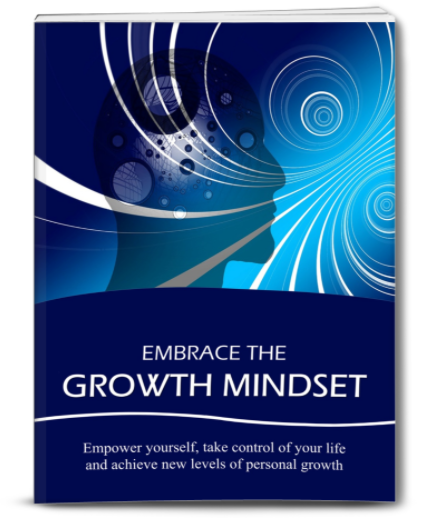Fixed Versus Growth Mindset

Fixed Versus Growth Mindset
The importance and role of your mindset, which is a combination of your values, beliefs, and attitude, has been examined by many over the years. In 2006, a Stanford university professor named Carol Dweck published a groundbreaking book, Mindset: The New Psychology of Success, which explained how your outlook plays a significant role in your success and happiness. She determined through her research that we all have a mindset that lies somewhere between two attitudes on the learning continuum.
What is a Growth Mindset?
As Dweck defined it, the growth mindset is one that believes that the talents and strengths you have can be developed continually throughout your lifetime. Learning happens as a result of practice, explicit effort, vicarious learning, and hard work. When Dweck proposed this mindset, it was in contrast with long-held notions that talents and traits, including intelligence, were innate and remained mostly fixed from birth.
A growth-oriented outlook helps you identify your personal strengths as well as identify room for growth and the ways you need to improve yourself in order to achieve your goals. After 30 years in the learning community, froth mindset has become firmly embraced by not only schools but also companies, organizations, life coaches, and those focused on personal fulfillment. Having a growth mindset empowers you to take control of your own life, realize your dreams, and improve yourself in ways that are personally meaningful to you.
The Difference Between Fixed and Growth Attitudes
This positive, growth-oriented attitude is contrasted with a more fixed view of learning. The fixed mindset believes that you are born with all the talents, gifts, traits, and capabilities you will ever have, which means that attempting to grow and change is fruitless. Those with this way of thinking about themselves and the world often find that they must prove themselves to others or compete because they value only showing their capabilities, not improving them. When you do not believe you can grow your character, intelligence, or talents, you tend to focus on ways to demonstrate what you already know.
There are many ways to see the differences between these ways of looking at yourself and the world. To summarize, here are some examples of how the two mindsets approach life or consider problems.
• The growth mindset finds lessons and inspiration in the successes of other people, while the fixed mindset feels threatened by others’ success.
• The growth mindset learns from criticism while the fixed mindset ignores this feedback because they do not believe they have anything to learn from it.
• The growth mindset desires to learn while the fixed mindset just wants to look smart to others.
• The growth mindset is able to see the bigger picture when seeking solutions to problems while the fixed mindset blames others, feels sorry for themselves, or only focuses on the negative in a situation.
• The growth mindset persists in the face of setbacks while the fixed mindset gives up easily.
• The growth mindset takes responsibility for their own learning while the fixed mindset ignores opportunities and seeks out distractions.
The differences between these two ways of thinking are best seen in how you deal with setbacks, your level of effort to reach a goal, and your views on challenges. But your way of thinking about yourself and learning can influence everything from the goals you set to the people you spend time with to your overall happiness and success in life. Learning to adopt a more growth-oriented way of thinking can help you embrace the power of learning and achieve your dreams in life.
Special Report Reveals
HOW TO EMBRACE THE GROWTH MINDSET
AND CHANGE YOUR LIFE

ARE YOU READY TO MAKE THE
MOST POWERFUL CHANGE TO YOUR LIFE?
TO TRANSFORM YOUR MINDSET
TO REALIZE YOUR TRUE POTENTIAL FINALLY?